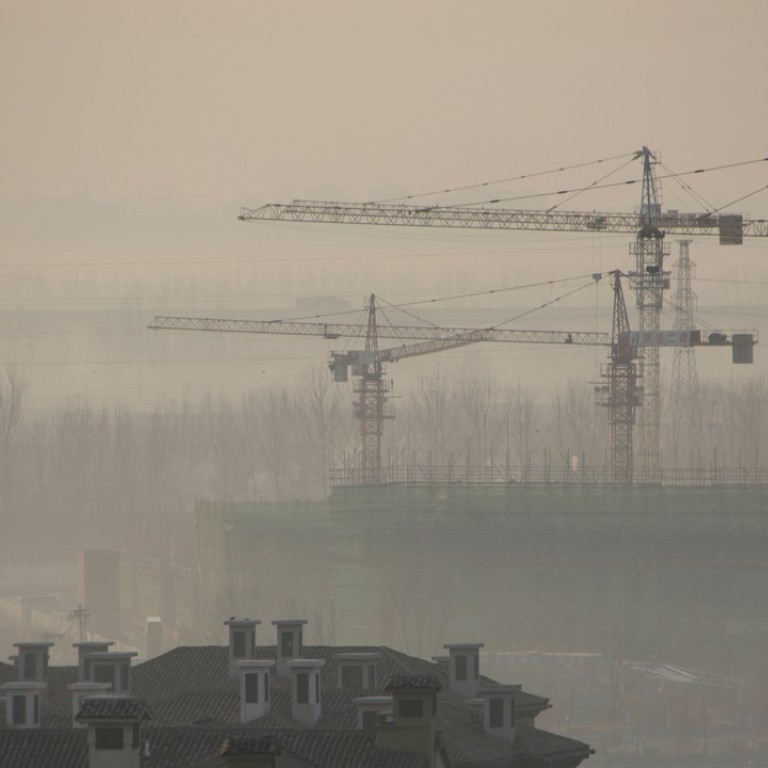
China’s state-owned banks told to stop lending to local governments as debt crackdown intensifies
Finance ministry issues blunt directory telling state-owned lenders to curb funding for local authority projects
The central Chinese government has sent a blunt message intended to dissolve the marriage between banks and local governments, the nexus in China’s debt-fuelled growth model.
In a directive full of “must nots”and “shalls” posted on its website last week, China’s Ministry of Finance, under the newly appointed minister Liu Kun, told state-owned financial institutions not to provide any funding to local governments, with the exception of buying government bonds.
At the first meeting of the Central Economic and Financial Commission, the supreme economic decision making body headed by Xi Jinping on Monday, the Chinese president said local governments and state-owned enterprises must cut debt further.
China’s state-owned banks were told to check the registered capital of projects sponsored by local authorities, to appraise borrowers’ real repayment capabilities and not to accept local government’s guarantees for repayment or return, according to the ministry’s directive.
Banks “must not provide any form of funding directly to local governmental departments or directly via local state-owned enterprises and institutions” and “must not increase new loans to local government financing vehicles irregularly”, according to the notice.
It added that banks must not lend any money to local governments to be used as capital in projects, government investment funds or public-private partnership projects, it added.
The lending of banks in China is usually regulated by the industry’s watchdog and the central bank, but the finance ministry can tell “state-owned” banks how to behave because it is theoretically the shareholder of state-owned institutions.
The finance ministry directive is the latest move in Beijing’s strategy for cutting debt, which started in 2014, and will be “much tougher” that previous measures, according to Ron Anderson, a professor of finance at the London School of Economics.
“Things are being sorted out very carefully, and there is a lot of coordination going on,” he said on the sidelines of an event at Peking University on Monday.
Anderson said China could avoid debt crisis like the one that hit Latin America in 1980s when governments’ inability to pay their creditors forced them to call in the IMF and badly damaged their economies.
China has been trying to control local government borrowing by swapping debts at local government financing vehicles for bonds and making it harder for local governments to borrow beyond their repayment abilities.
On the surface the government has made some progress. China’s official figure for local government debt was 16.5 trillion yuan (US$12.6 trillion) by the end of last year.
That, together with 13.5 trillion yuan of central government liabilities, was only 36.2 per cent of its gross domestic product, much lower than the international norm and “controllable overall ”.
At the same time, some economists said the figures covered up the real problem as local governments had learned new ways to hide their debts.
Yin Zhongqing, deputy director of the financial and economic affairs committee at the National People’s Congress, told the South China Morning Post last month there at least 20 trillion yuan of “hidden debt” had been accumulated in the past three years.
The national institution of finance and development under the Chinese Academy of Social Sciences last week estimated the total liabilities of local government financing vehicles was 30 trillion yuan, while another 10 trillion yuan of debt could be buried in public-private partnerships.
The ministry has acknowledged local governments’ illegal fundraising, and pointed the finger at some local cadres who hope to boost their economies to gain promotion, financial institutions that relax their risk control requirements in pursuit of profit and a failure to conduct proper audits.
Lu Bingyang, a professor of fiscal science at the Renmin University of China, said the move would raise the bar for fixing potential loopholes and more follow-up policies could follow.
“Without the cooperation of financial institutions, the [debt size] of local government financing vehicles can’t grow that rapidly,” he said.
“In reality, some local governments can influence the decision making of certain commercial banks.”

